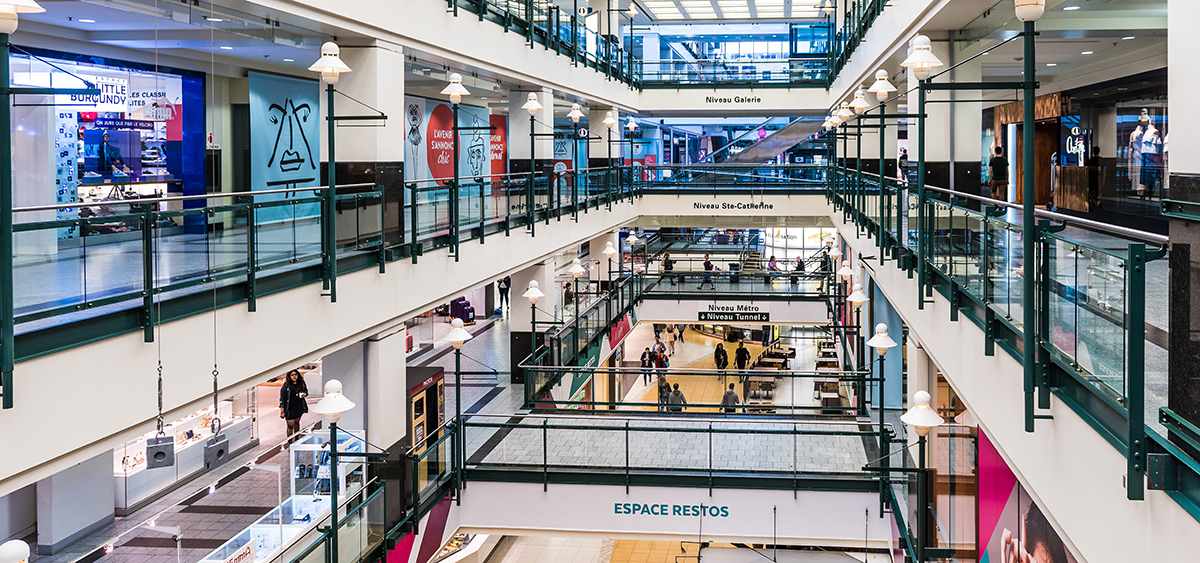Do you want to rent a commercial space for your business to practice your profession or to work on a project? Here are five things you should know before signing a commercial lease.

1. Commercial leases are different than residential leases
Here are a few examples of the differences between the two:
- Security deposit. The landlord of a commercial space can ask the tenant for a security deposit. That is not allowed for residential leases.
- Sub-lease or assignment of lease. A commercial lease can stop a tenant from subletting or assigning their lease. The tenant of an apartment can normally sublet or assign their lease.
- End of lease. The tenant of a commercial space must normally leave when the lease ends. A residential lease is automatically renewed when the term is up and the tenant gets to stay in their apartment.
- Tribunal to settle conflicts. Under a commercial lease, the tenant cannot ask the Tribunal administrative de logement (TAL, formerly Régie du logement or rental board) to resolve a conflict with their landlord. The TAL only hears conflicts relating to residential leases. The Superior Court or the Court of Québec deal with conflicts involving a commercial lease.
2. Each lease includes different services and costs
Check what is included in the lease. You can negotiate with the landlord about what services and costs will be included.
There are several expressions used to label commercial leases depending on who pays. For example:
- Gross lease: This is the “all-included” lease. The tenant must only pay the rent. The cost of running the building, such as maintenance and operating costs, are paid by the landlord or included in the rent.
- Net, net or net net net lease: In addition to the rent, the tenant must pay all or part of the operating and maintenance costs for the building (ex. necessary work, cleaning, municipal or school taxes, electricity, heating, or air conditioning for the common areas).
These definitions are not official and may have a different meaning depending on the lease. Generally, the more the word “net” is added to the lease, the more costs the tenant must pay.
3. You may have to pay for repairs
The lease may provide who is responsible for maintaining the premises or the building and doing maintenance or repairs. You could even be the only one responsible for it. You can also talk to your landlord about what repairs each of you will pay for. This can depend on the type of work, when it must be done, and where work is required.
If nothing is indicated in the lease, you must:
- do minor maintenance work.
- use the premises with prudence and diligence. For example, you must repair the workshop if you damage it or notify the landlord if something breaks or deteriorates.
- return the premises at the end of the lease in the condition in which you found them.
The landlord, on the other hand, must provide premises that are in good condition at the beginning of the lease and make necessary repairs to the premises (other than minor maintenance work) and the building.
To find out more, read our article “Renovating and Repairing Commercial Spaces”.
4. What activities are permitted may vary from one space to another
Be sure to check with your landlord what activities are allowed. Not all commercial premises allow the same activities. Check the lease before signing to make sure that the activities you wish to carry out are permitted.
If you carry out activities that are not permitted under the lease, there could be consequences. For example, you may have to pay a penalty. The landlord could also take legal proceedings against you to either force you to respect with the lease or to end the lease.
Check the zoning
Your activities must abide by the zoning by-laws for the city or borough in which the space is located.
Generally, the landlord is responsible for checking whether your activities are allowed under the zoning where the premises are located. However, the lease may also say it is the tenant’s responsibility to verify the zoning rules.
Check whether you can get the necessary permits
Permits are required to carry on certain commercial activities, such as a retail business or restaurant.
Make sure you can get the necessary permit before you sign the lease. By signing, you agree to pay rent for a certain amount of time. This applies even if you cannot do the activities you had planned on.
5. You could be responsible for your company’s lease
A company can sign a commercial lease. In this case, the company is the tenant and is responsible for fulfilling the obligations under the lease. To find out more about what companies are responsible for, read our article “Business Corporations (Companies)”.
However, the landlord of the premises may ask that a representative of your company also be personally liable for the lease, often as a “surety”. This means that the landlord can sue the representative if the company does not fulfil its obligations, for example if it does not pay the rent.
|
To learn how artists’ studios fit into the rules on commercial leases, see the videos and guide on the website of the Conseil des arts de Montréal (in French only). These resources were developed by the Conseil des arts de Montréal, the City of Montreal and Éducaloi. |







